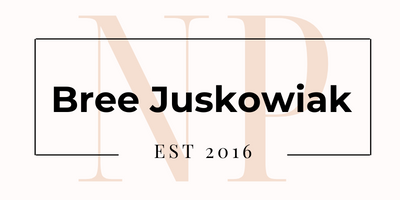What Makes For A Good Orientation
How long is long enough? When will I know I’m ready? How will I learn all this? All valid questions you should be considering when starting your NP job. Especially if this is your first job. The transition to practicing as a nurse practitioner is hugely different than that of becoming a nurse. Not only do you have all the clinical stuff to learn but even the work of learning how to structure your day, how to author notes, how to bill, what needs follow -up. So many facets of just being an NP exist, beyond the medicine piece. This is what many underestimate and these factors just do-pile onto the mountain of overwhelm many feel when becoming a nurse practitioner. So the appropriate question is what will my training be like? In this article I attempt to break down the components I feel lend itself to a good orientation process.
Clinical Pearls: Procedures Performed In An ICU
What exactly can I do as an AGACNP working in an ICU? Commonly encountered question with the answer being fairly straight forward, with a little variation. Several factors exist which effect routine practice and this includes your training, your credentials (with the hospital), the comfort level of your attending, and the culture of scope allowance at your specific workplace. I’ve worked places where I do it all, and places where I do less. I find this varies most by work team structure and culture. The more staff available, including medical trainees the fewer procedures you will likely perform. Most students are aware of the common procedures we perform (central lines, dialysis catheters, and arterial lines) but there are a whole host of procedures we could perform. In this article I’ll discuss the myriad technical skills we as nurse practitioners can learn and perform to contribute to patient care.
Clinical Pearls: VBG vs ABG
There is a legitimate reason why ER providers consistently order a VBG over an ABG and the ICU provider then may or may not believe the VBG choosing to tack on an ABG instead.
Many patients in the hospital require assessment of their acid base balance and oxygenation/ventilation status which is best quantified from serum arterial samples. Additionally, the ABG provides expedited lab results such as hemoglobin, potassium and other electrolytes, and lactic acid. These values are very helpful in making a rapid diagnosis and treatment plan. A venous blood gas seems to be the standard replacement for an arterial blood gas in the emergency department. It does offer some benefits, but has limitations as well which should be acknowledged.
The focus of this article is to describe the pros/cons of using a VBG as a surrogate, the exclusion criteria, and the method of converting a VBG to an ABG.
Clinical Pearls: Is it DKA or HHS?
Should be pretty straight forward, but even amongst seasoned providers this can sometimes be debatable. Especially when you don’t have all the labs back. Often we are called to admit a patient for DKA because they do not seem appropriate for a routine floor or even step-down ICU admission. The Internal Medicine/Hospitalist team may not feel comfortable taking a patient but on your evaluation they do not seem to be on the severe end of the spectrum. You aren’t alone, my friend. Let’s talk about admitting a DKA vs HHS patient and how you make a diagnosis.
When Should You Start Job Applications
January…the month following December graduation. It’s a joyous time, and you absolutely should be celebrating. But what comes next? What I see across the nurse practitioner forums and social media are two big concerns: board exams and job acquisition. I wrote about board certification and how to prep for this a few weeks ago; today I’d like to focus on a topic that I think half the people are getting wrong. That is timing for job application. Many NP students ask when is the right time and the responses are mixed. On a recent post I tallied it was completely split 50/50. Half the people felt you should apply while in school and half felt you should wait until exam and licensing is complete. My argument is that if you are waiting until the latter you are behind the eight ball. Statistically speaking, I know this is likely to stress out half of you and that is not my goal. Hear me out, there are many reasons why I advocate for earlier efforts. Let’s talk about job applications.





